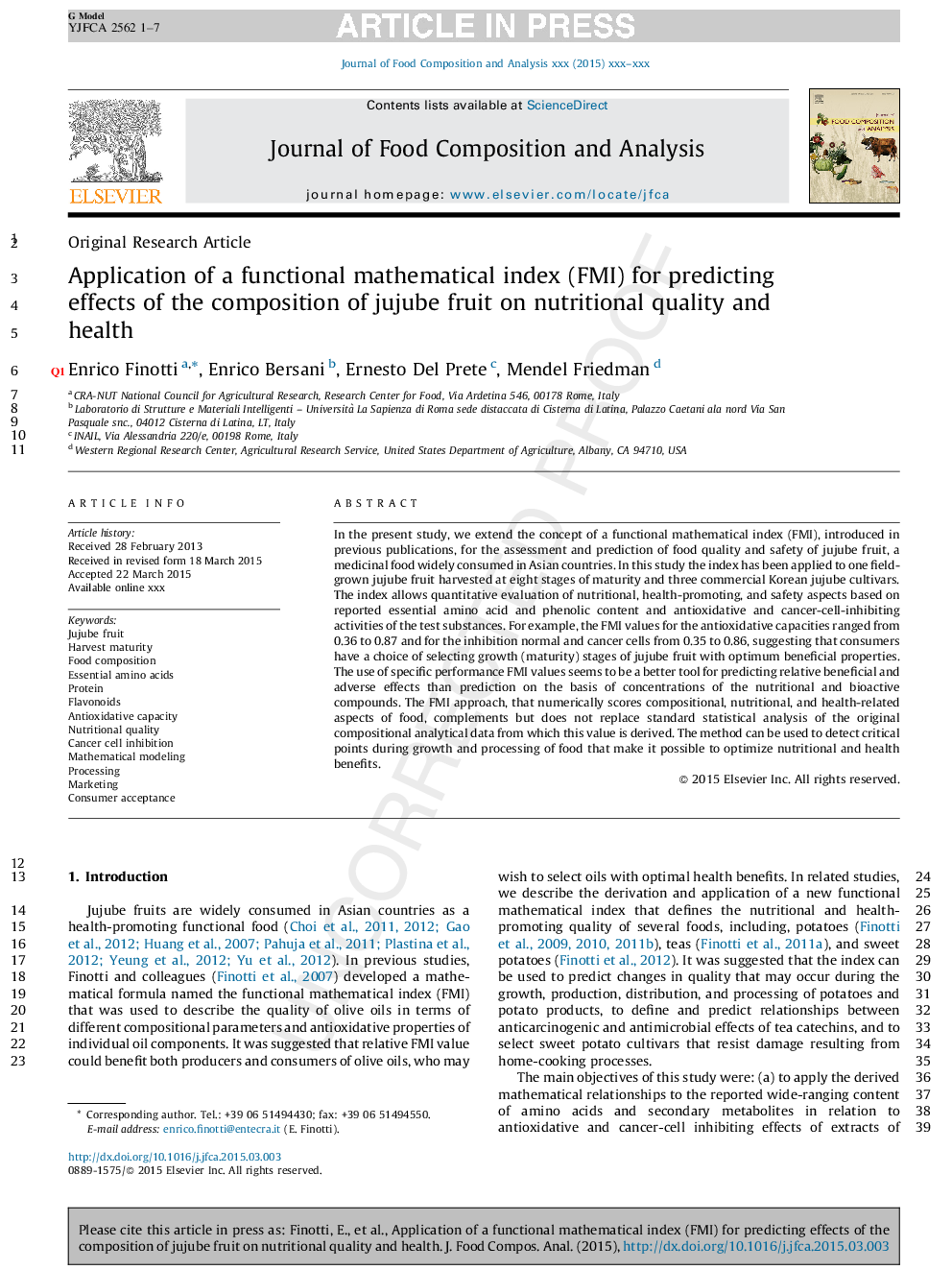| Article ID | Journal | Published Year | Pages | File Type |
|---|---|---|---|---|
| 7620450 | Journal of Food Composition and Analysis | 2015 | 7 Pages |
Abstract
In the present study, we extend the concept of a functional mathematical index (FMI), introduced in previous publications, for the assessment and prediction of food quality and safety of jujube fruit, a medicinal food widely consumed in Asian countries. In this study the index has been applied to one field-grown jujube fruit harvested at eight stages of maturity and three commercial Korean jujube cultivars. The index allows quantitative evaluation of nutritional, health-promoting, and safety aspects based on reported essential amino acid and phenolic content and antioxidative and cancer-cell-inhibiting activities of the test substances. For example, the FMI values for the antioxidative capacities ranged from 0.36 to 0.87 and for the inhibition normal and cancer cells from 0.35 to 0.86, suggesting that consumers have a choice of selecting growth (maturity) stages of jujube fruit with optimum beneficial properties. The use of specific performance FMI values seems to be a better tool for predicting relative beneficial and adverse effects than prediction on the basis of concentrations of the nutritional and bioactive compounds. The FMI approach, that numerically scores compositional, nutritional, and health-related aspects of food, complements but does not replace standard statistical analysis of the original compositional analytical data from which this value is derived. The method can be used to detect critical points during growth and processing of food that make it possible to optimize nutritional and health benefits.
Keywords
Related Topics
Physical Sciences and Engineering
Chemistry
Analytical Chemistry
Authors
Enrico Finotti, Enrico Bersani, Ernesto Del Prete, Mendel Friedman,
